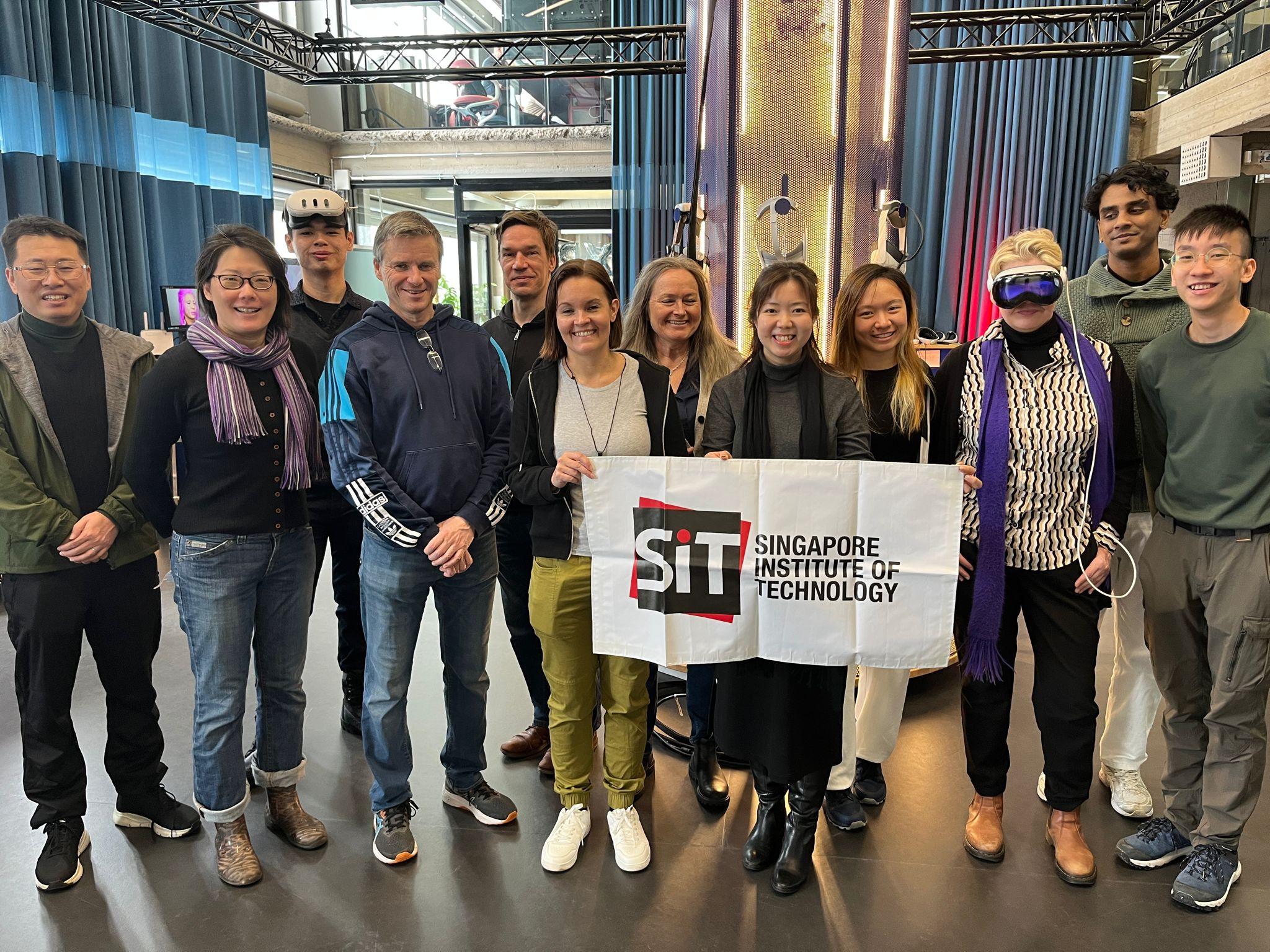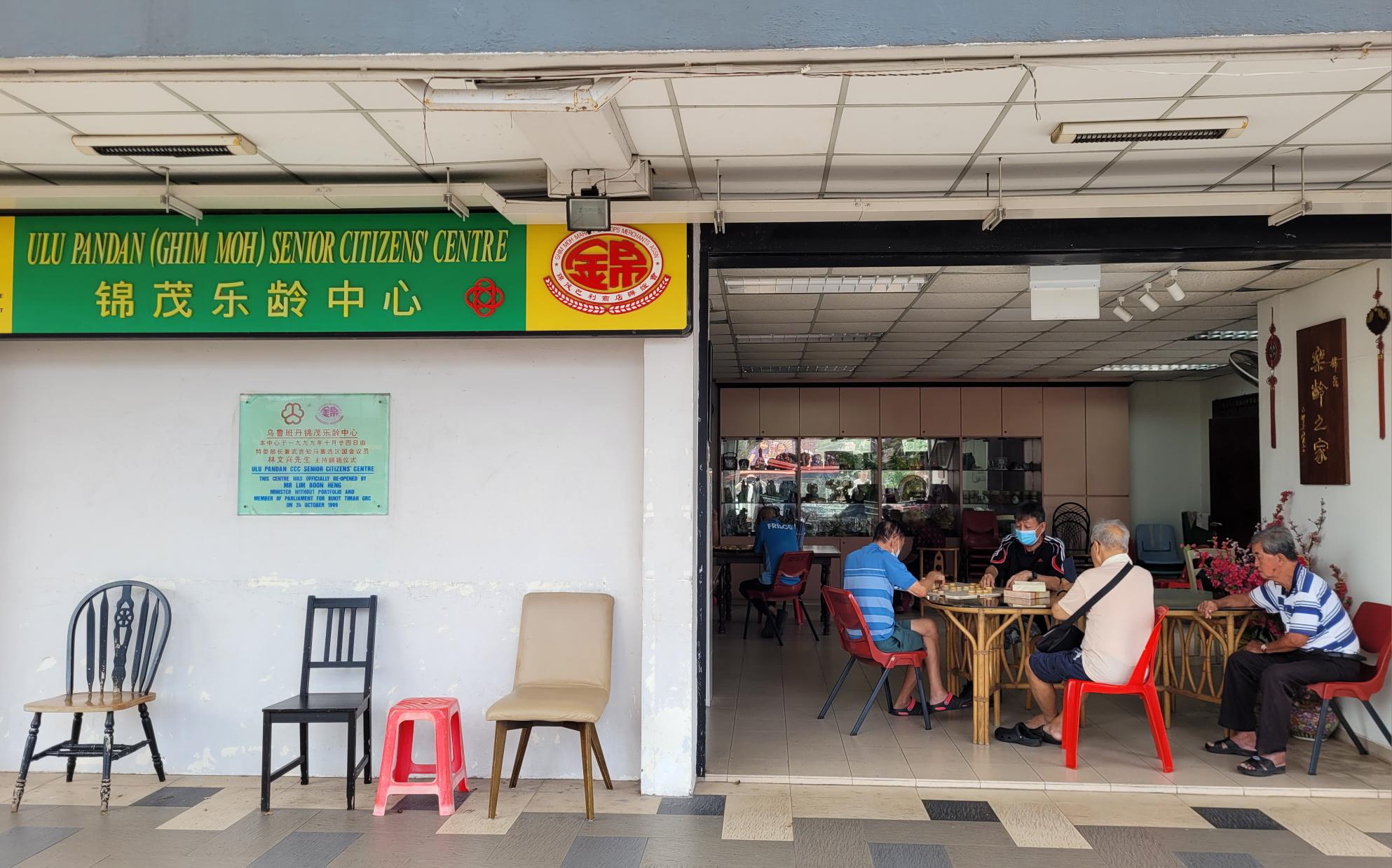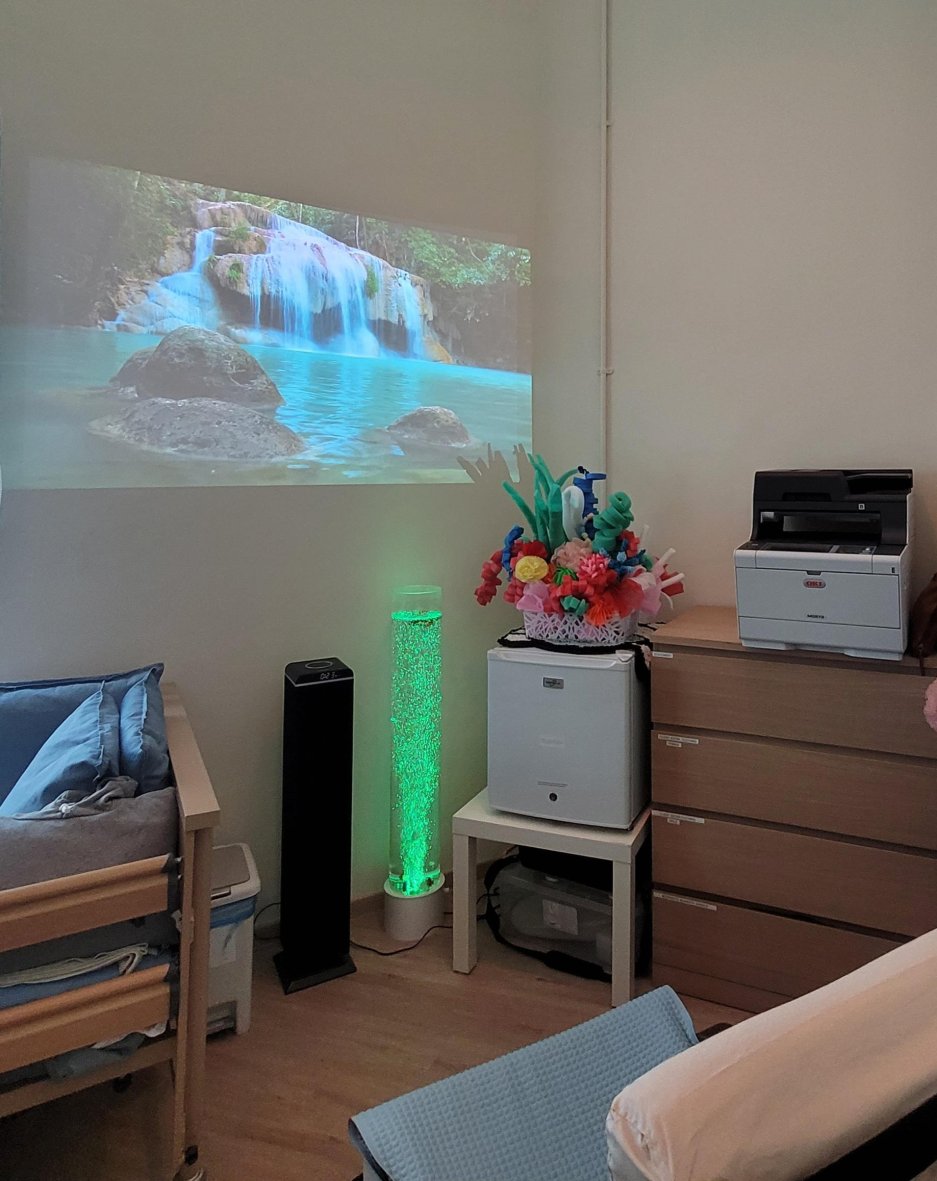
This is the reflective story of an occupational therapy student, Minna Hujanen, who did her internship as a part of an international project. A big part of the internship was preparation about user trials concerning two different digital solutions in daycare center in Singapore. One solution was concerning videos from thi Finnish nature and the aim of it is to relax and build up resilience through VR or screen applications. The second was the route application with different route videos from nature and city environments in Finland. The initiation to these trials came out from the day care center because of their interests and needs to utilize digital technology in their daily practices.
The purpose of the two-week piloting period was to collect information on how the older adults with various memory disorders and cognitive challenges experienced virtual nature experiences. Preparations of user trials considered meetings with the director and staff from the center, familiarization pre-pilots of the use of solutions and creation of invitation letter to the users and their relatives. Also, preparations consisted preparative meetings with project teams and other students from Metropolia and Singapore Institute of Technology (SIT) and the supervisor of the internship.
Background
The whole world is aging rapidly, and this creates new challenges for social and health care. According to the UN, there will be 1.6 billion people aged 65 and over by 2050. It is more than double compared to 2021 (United Nations 2023). The other challenge is, that population prospect between people +65 compared to working-age ratio will almost double in the next 40 years (United Nations 2019). This poses new challenges for the training of future professionals working with older people. There are already too few employees compared to the older people who need services, and this imbalance will only grow. New ways to meet these challenges are therefore needed globally. In the future we need professionals who are competent not only caring and rehabilitating, but also able to co-develop and implement digital solutions and services into the different practices.
Besides of training students and professionals to use digital solutions Metropolia University of Applied Sciences has conducted several projects for the purposes of user-friendly digital solutions together with companies, aging people and professionals in Finland. Because of companies aims to export their solutions it has come out the need to pilot solutions with local end-users and staff members abroad.

What Did I Learn as a Student in an International Transdisciplinary Project?
I had the opportunity to participate as an occupational therapy student in an international project ”Design Thinking and Co-creative Learning through Transdisciplinary Education for Better Aging” (DeCoLeA), which is a Finnish-Singaporean project funded by Finnish National Agency for Education. The project is one of the Team Finland Knowledge (TFK) projects, which aims to create and strengthen collaboration between higher education institutions in Finland and from a selected strategically important country (TFK 2023).
In this project, answers were sought to the following main and its subquestion:
- How do the care professionals learn to solve problems and come up with new innovations in transdisciplinary collaborative projects?
- How can the care professionals of the future be trained to use digital solutions more effectively?
- How can digital solutions be developed and used to improve the quality of life of the older people?
I did my last internship in the project and part of it was piloting virtual reality nature experiences at Hovi Club Ulu Pandan, a private day care center for the older people in Singapore.
My participation in the project lasted in total seven weeks, which was a short time in a 2-year project. I jumped on and off a moving train, as it were. But this was more than just an ordinary internship. The experience not only taught me new skills, but also shifted my mindset to a new position. It opened me a door to a different kind of thinking, which is valuable in the future in professional and in personal life.

Crossing Boundaries While Upholding Professional Values and Ethics
Working in an international and transdisciplinary team requires that you have the ability and desire to work with people of different backgrounds. You have to be open-minded crossing the boundaries of your own field, but at the same time, bring out and act in accordance with your own professional skills and professional ethics. This way of working opens up new perspectives and the possibility of co-creation, where something new is born that no one would have come up with alone.
International context develops culturally sensitive thinking. The user trial project brought out the cultural differences very concretely and helped to understand that what works in Finland does not necessarily work in another cultural environment. For example, in Finland, people often find natural landscapes without people relaxing and refreshing, whereas Singaporeans prefer to see people, and therefore, nature images tend to feel more distressing and puzzling rather than enjoyable.
Communication and Presentation Skills
Listening to different perspectives is especially important when you really want to develop something together. Equally important is to ask questions and speak up your own thoughts. One can also change one's own thoughts, let them develop under the influence of the perspectives brought by others. It's not a competition to see whose idea wins or who gets others on their side. At best, the ideas are shaped so that they become common without the idea having an individual owner anymore.
As a by-product in such a project, you learn to articulate your own expertise and to tell a multi professional community about your own work both in written and oral presentations.
Tolerating Uncertainty and Trusting the Process
Working is process-like, and the road can be winding. When you initially position yourself so that things are modified together along the way, your own thinking becomes flexible. This is best achieved when the working environment is psychologically safe. There may be moments of frustration and doubt along the way, and there must be space for these to be expressed. Nevertheless, someone also has to keep hope alive. A positive and forward-leaning attitude is contagious. When we keep on working together through the challenges, something always happens. Failures also create knowledge; this didn't work and now we know it. Everything becomes a learning experience.
Working in an international and transdisciplinary project has been an eye-opener for me and it has also given me new dimensions to my way of thinking as an occupational therapist. I think that the mindset of an occupational therapist is flexible and dynamic by nature. In practice, we often work
at the individual level, but an international project forces to scale thinking from the grassroots level to the global level. The world's complex problems require even more collaboration between different professions and disciplines, both theoretically oriented and practice-oriented people. People of different ages should also be brought to the global planning table, from young students to older adults. Many of today's challenges are shared worldwide and the best way to find solutions is through co-creation.
Our Lessons Learned from This Case
Even there is a great autonomy in higher education in Finland, there are three important purposes that are giving to it by the law. These purposes are education, regional development and research, development, and innovation. Minna’s reflections about her learning experiences shows well that all these three purposes can be integrated and conducted in meaningful way in international project in collaboration with working life and business.
Agetech development is based on transdisciplinary collaboration. Within agetech development and implementation there are several activities in which students’ participation and efforts are welcome. Harra & Lintula (2023) have highlighted that the development of user-friendly age technology should ensure for example the following aspects:
- Guarantee equal opportunities for all participants to express their opinions and views, as well as to take part in decision-making.
- Ensure equality, accessibility, and inclusivity for all participants through jointly established guidelines.
- Create a development environment that is physically, psychologically, socially, and digitally safe for participants.
Minna’s reflective story describes in nice way also the attitude and values that are needed in this kind of learning in RDI-project. It requires, but also train students’ ability to integrate theory and practice. It trains students’ ability to face and live with complexity. It challenges students’ problem-solving skills, but the most important thing is that through this kind of experience our students will become more competent to meet the fcomplex challenges that they will meet in future rapidly changing working life.
References:
United Nations, Population Division World Population Prospects 2019.
Harra, Toini & Lintula, Leila, 2023. Eteenpäin käyttäjäystävällisessä ikäteknologiassa. In E-book Käyttäjäystävällisen ikäteknologian aallonharjalle. Ed by Toini.Harra, Anna Kaipainen and Leila Lintula. Taito 123. Metropolia Ammattikorkeakoulu. Saatavilla: https://urn.fi/URN:ISBN:978-952-328-407-4
Kirjoittajat:Minna Hujanen, Occupational Therapy student, Metropolia UAS
Toini Palo, Project Manager, Design Thinking and Co-creative Learning through Transdisciplinary Education for Better Aging, Principal Lecturer, Future Proof Health and Wellbeing, Metropolia UAS



